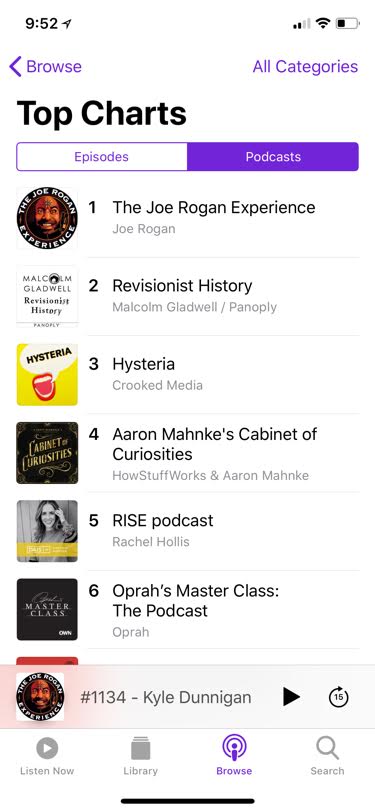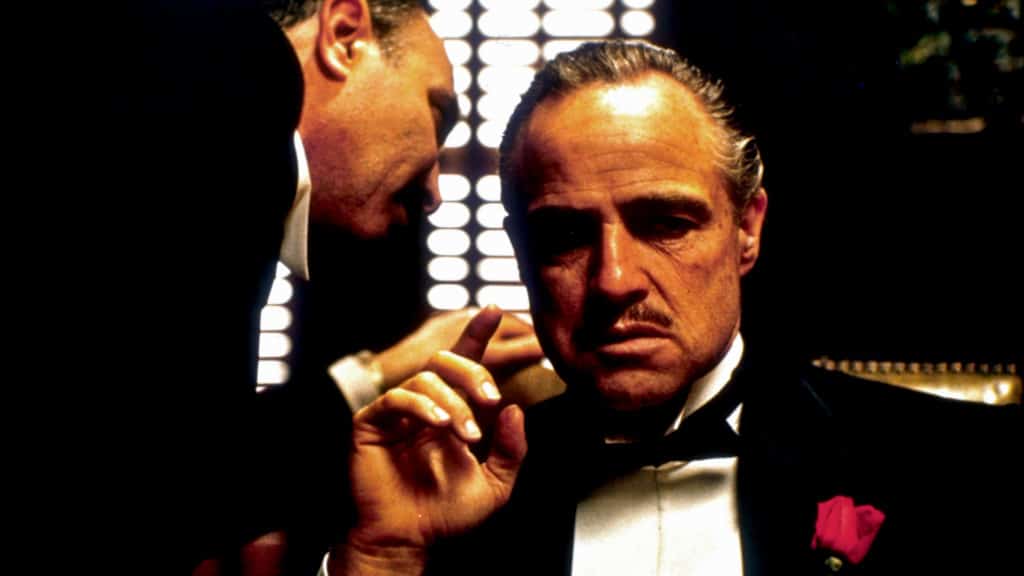

July 6, 2018
Great cultures

“The Medium is the Message.” – Marshall McLuhan.
Rogan has guests from the cultural zeitgeist, and he discusses current issues so the audience feels like they’re being educated (much the way people would get their news from the Daily show).
But I find his use of the medium the most compelling reason. Here are the factors:
1. LONG SHOWS
In the first episode I ever listened to, I heard Joe say, “This is it people, there’s no editing.” And I was pissed! I thought – Do me the favor. Edit this to the best parts so I can listen in 20 minutes. But now if it’s a good episode I’ll listen to the whole 3 hours. It feels like eavesdropping on a great conversation, as opposed to a lot of sound bites.
2. IN-PERSON
In comparison, Skype/phone podcasts feel really distant, especially if people have bad mics (or no mics).
3. STRONG ENVIRONMENT
Guests don’t go to a room, they got to Joe’s Disneyland – They see the archery range, the float tank, pool table, gym. You’re entering his world, and the guests have a great sense of wonder and respect going into it.
3. PREP TIME WITH GUESTS
While it’s not actual preparation, Joe spends time with them beforehand, talking or playing. So there’s a warm up (which all great athletes do). By the time they’re talking, they’re in the groove, unlike most podcasts, which start cold.
4. COMEDY AND IMPROV
He’s a great comedian, so he can make fun of anything. And he’s also conversing with the principles of improv – he listens really well and can riff on what anyone is saying. So there’s a flow to it. I feel ruined for other podcasts because they feel so rough in comparison. (Here is my own foray into standup comedy)
5. HAVING A LISTENER
This is a bit strange, but in the personal development space, programs like Landmark actually have people whose role it is just to listen. They’re holding space for a larger conversation. The producer “Young Jamie” on Joe’s show listens and brings in relevant information. It gives the show a 3D feeling whereas a two-person show feels flatter (think about it from a sheer physics stand point – It takes 3 points to create a stable plane whereas two points are inherently unstable).
I would recommend checking out the episodes with Jesse Itzler, and Steven Tyler.
One other show that does it well is “Anna Fariss is Unqualified” for many of the same reasons. Check out the episodes with Bert Kreisher and Mayim Bialik.
April 17, 2018
Great cultures
I walked away from what I thought was the best meeting ever…
“Yes, we got everything we asked for!” I said.
We had just walked out of a meeting with Zappos CEO Tony Hsieh, and he gave us all the resources we asked for to launch a new project.
My colleague said, “That’s not good.”
“What?! Why?”
“He didn’t say no to anything. What other support could we have asked for that we didn’t think of?”
Ohhh….
Such an interesting concept.
You don’t know that you’ve asked for too much until someone says “No.”
Many friends and colleagues have offered to help me. I rarely ask for it, but when I do, I get a Yes.
So now I’m wondering: What else is possible? What am I leaving on the table?
What could you be asking for?
It’s amazing how often the response will be a simple, “Yes.”
April 13, 2018
Great cultures
Dave Logan, author of Tribal Leadership, helped me see the power of a good listener, who has the ability to influence conversation without even saying anything. He said, “You can tell who has that kind of power because if they look at their watch then the whole room.” Their presence holds the space of the conversation.
Sometimes that’s a real person… The worldwide training company, Landmark Education, has someone listening to the leader just to hold space for the conversation. I myself was the listener in the room when Dave recorded his audiobook. And I have noticed that the best podcasts seem to have a producer there in the room.
The eerie part, is you don’t even need a real person. Think that’s weird?
At Amazon.com they keep a chair open at meetings to represent the customer’s voice. How cool and weird is that?! It’s like a ghost is there.
It seems like Walt Disney is still there when you hear the stories behind the scenes in Disney management and training. And if you can wrap your mind around this: Steve Jobs’ biographer said those close to him still speak of him in the present tense… What?!
And it hit me… Without getting into the beliefs, the world’s most well-known person may be the ghost of Jesus.
Let’s stick with the living ones, at least for now…
Do you notice who are the powerful listeners at your company?
What are they listening for?
What space are they holding?
March 20, 2018
Culture of Chaos ,Values

When I’m with a group of leaders and managers, there’s often one from a family business.
They are the ones who throw me a curveball. Their culture questions are very different from the rest of the group. The conversation ends pretty quickly once I give them the answer they are not expecting. I say:
It gets a ton of laughs but I’m serious.
The mafia plays by different rules, or perhaps different values. While corporations tend to be based in performance, results, and service. Family business usually means the values are loyalty and trust, before anything else.
So while that leader in the company (usually a son, brother or cousin) is trying to shift the culture, they have to play the game. They want to do things differently but what they really have to do is build up so much trust and loyalty by staying in-line.
In no other circumstance do I say this, but I say – Be a Yes Man, or a Yes Woman. Do it to the point that they get sick of it. Then they’ll either build up a ton of credit to use later, or the leaders will simply hand over more responsibility.
And the next question is – Do you want to play that game?
Because you always have a choice. You can leave and find a place that’s more in line with your values. Or if you stay, play the game and help improve it by working from within.